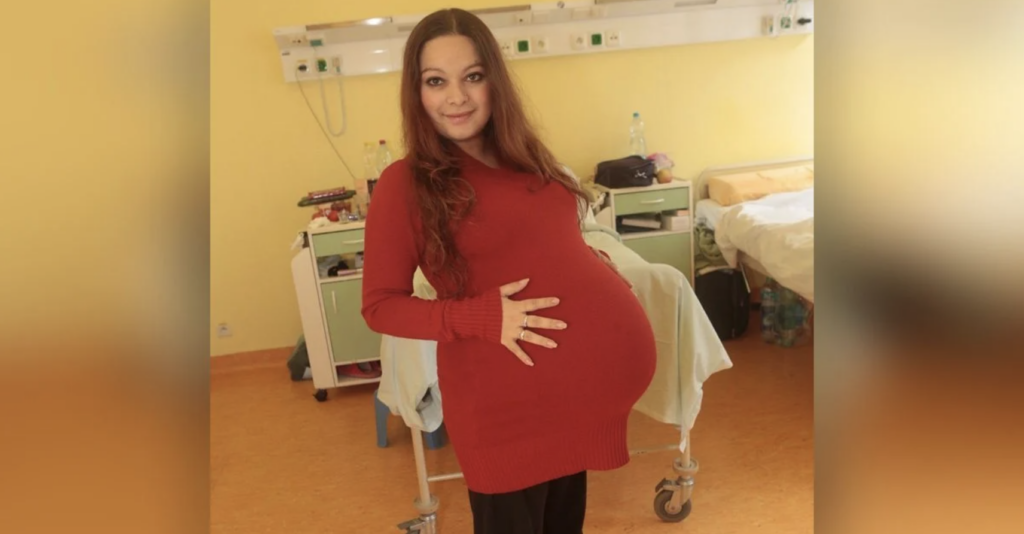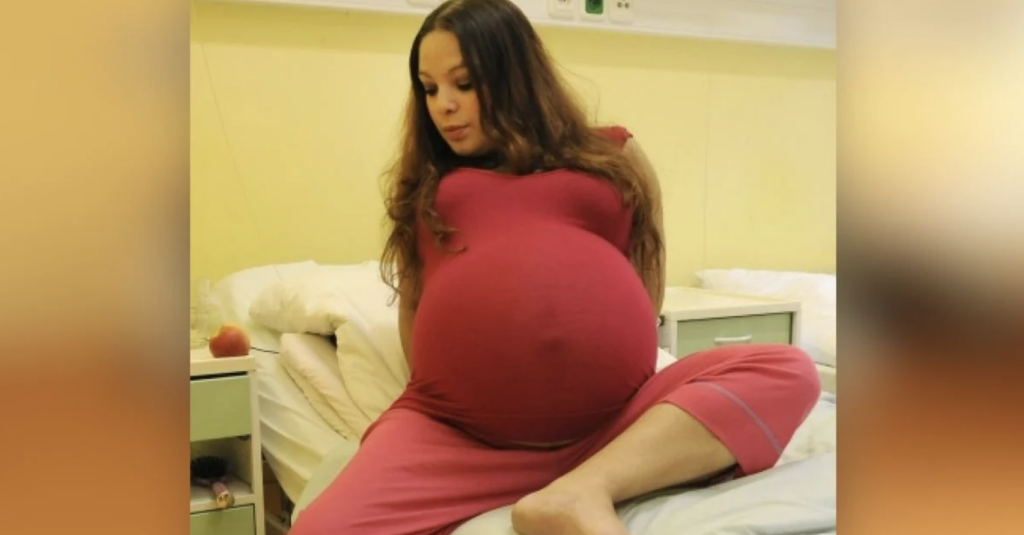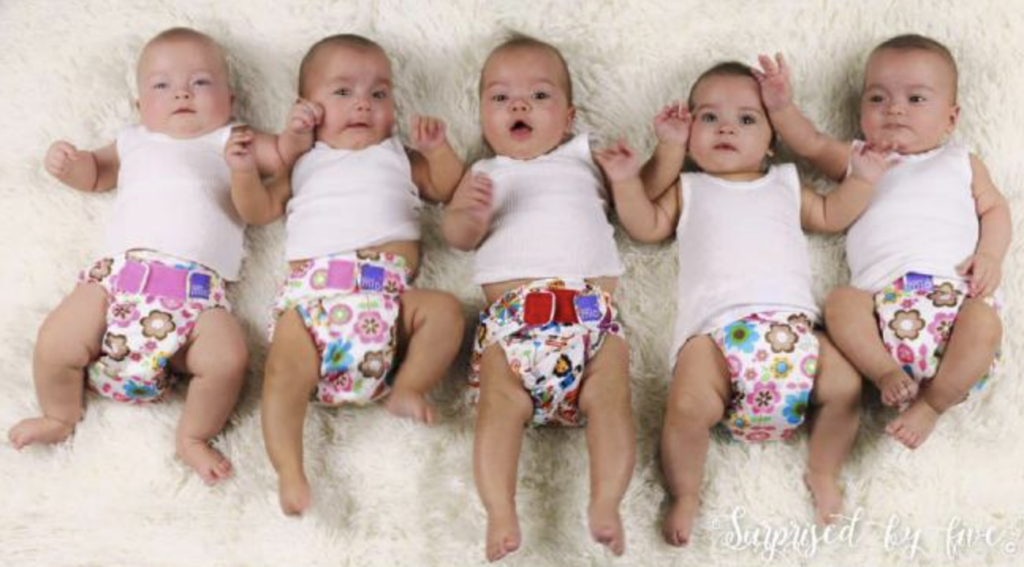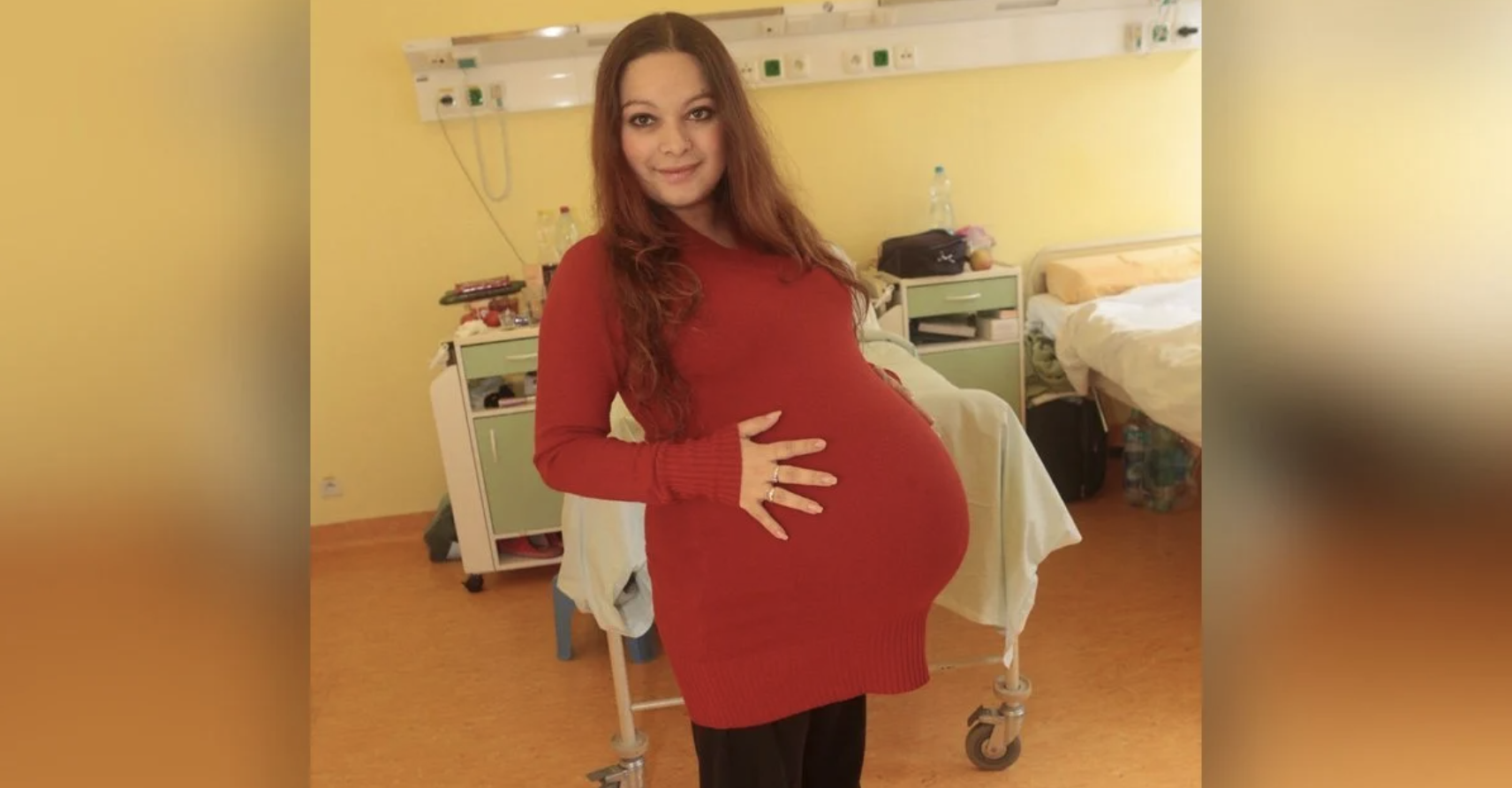Did you know that an infrequent incidence happens in about 1 in 60 million births? It’s been a fantastic occurrence recently in the lives of Alexandra and Antonin, a couple from the Czech Republic.
When they realized they were expecting not one but two bundles of joy, their desire to expand their family took an unexpected turn.

The news overjoyed the couple; they couldn’t wait to share it with their loved ones. They had no idea how drastically their lives were about to change.
The couple was overjoyed when they went to the doctor for a routine ultrasound. However, the doctor’s attitude appeared odd, perplexing Alexandra and Antonin. Their world was about to be turned upside down, unbeknownst to them.
The doctor calmly informed them that their expectation of two babies was incorrect—they would be parents to not two but four beautiful children!
As they returned home, Alexandra and Antonin’s hearts were filled with dread and joy. Despite their surprise, they gradually reconciled themselves to the prospect of having four children and began arranging their home accordingly.

Alexandra’s voyage needed another visit to the hospital for a routine ultrasound as time passed. An unexpected twist awaited them, however: the doctor discovered the presence of a fifth baby. Alexandra was overcome with emotion and couldn’t help but cry.
Though she had hoped for a normal birth, the chances of it happening were 1 in 7 million. Her commitment to breastfeed all five babies was also a huge hurdle.
When the big day arrived, the room was packed with roughly 40 doctors and nurses, ready for any issues. The birth went off without a hitch, and the couple was rewarded with five healthy and stunningly gorgeous infants—four boys and a girl.

Daniel, Michael, Alex, Martin, and Tereza were their carefully picked names. It is vital to remember that quintuplets are extremely rare in the Czech Republic, appearing only once every 480 years on average.
Quintuplets can be fraternal (multi-zygotic), identical or a combination of both. Fraternal quintuplets are the product of five distinct egg and sperm pairings, whereas monozygotic multiples are the result of a fertilized egg dividing into two or more embryos.
Here’s an interesting fact: did you know that the natural conception rate of quintuplets is 1 in 60 million? Quintuplets are typically the consequence of assisted reproduction procedures.
Another noteworthy element is that quintuplets may have different birthdates due to a delay in each child’s arrival. Babies are sometimes born on other days.

A quintuplet pregnancy lasts approximately 29 to 30 weeks; most births happen via cesarean section.
Raising quintuplets is undoubtedly tricky, but it is also a gratifying experience. It demonstrates that God never stresses us beyond our abilities, and we must express our thankfulness for such an astounding miracle.




